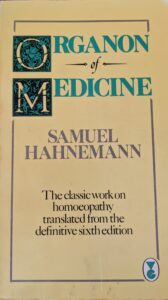I heard someone on the radio saying that we are living healthier and longer lives than ever before. In fact it is a mantra that is often stated. We take such a statement at face value because it seems to make sense, after all the average lifespan in the UK is just north of 80 years which is a good deal greater than the Biblical “three score years and ten”. And of course childhood mortality is now very low. So far, all for the good.

On the other hand, back in ‘lockdown’ when I cycled out into the New Forest and took a wander round a few rural churchyards, I was rather surprised to see people living to a good age a century of more back. Some into their eighties, which I suppose – being the strongest consitutions – would be ninety year olds of today.
I find much the same in rural churchyards I have visited elsewhere, though my analysis is hardly comprehensive.
Curiously, 34 seemed to be a hazardous age in one cemetery in the Outer Hebrides, my guide – a local man – was 43, and so I congratulated him on his achievement!
But seriously, it got me thinking about health. Are we truly healthier? What is the secret to living longer and healthier?
One of the wonders of the internet age is the ability to do a little armchair analysis. The NHS statistics service (NHSBSA) tells us that the cost of medicines prescribed in primary care in England was £9.4 billion in 2020/21, 55% of the total drug expenditure (hospital prescriptions making up the other 45%).
Seems to me that if we were truly living healthier lives, that longevity would not come at this cost.
That my wanderings have been into rural cemeteries in Britian is significant. I suspect the story in the industrial cities would be very different. Factory life was harsh. Social class was and remains today an important factor in health and lifespan.
So, my hypothesis could stand or fall on the data I choose to select (a subtlety not lost on those who write ‘scientific’ papers today, by the way).
Still, I will hazard a guess that rural communities who lived by the seasons, in unpolluted environments, ate simply, and worked hard but suffered low stress, were quite healthy. At a time when there was not much medical intervention either.
We need to understand why our drugs budget is so high. NHSBSA have some revealing statistical collections that tell us that:
Needless to say, the most deprived areas received the higher proportion of the prescriptions.
Drug cost is just a part of the picture. The drugs are a short term fix. In the longer term health conditions become more complex and more costly, especially where in-patient care is required.
How do you react to these figures?
Cardiologist Dr Assem Malhotra has some interesting observations – here is a recent interview with Dr Ken Berry MD on YouTube. It is worth a watch.
It should not come as a great surprise that the Malhotra and Berry conclude that the fundamentals of health for most of us are quite simple
I have written before about colour and diet, here is a nice photograph to illustrate the point.

Were it possible to go back in time and apply a light touch of modern medical practice, I rather think the longevity of our ancestors would match that of today, with better underlying health. By light touch, I mean simple steps to reduce infant death, handle trauma, and acute life threatenting conditions.
Towards the end of the interview Dr Malhotra explains the true cost to health of poor diet.
In this topsy turvy world is it not strange that ultra-processed food is cheaper than fresh simple food? Deprivation and disease go hand in hand.

I suppose this blog should be about homeopathy, yet no mention thus far. Well, here is a snippet.
Last month I wrote about Dr Samuel Hahnemann, generally considered the founding father of homeopathic medicine, who makes it very clear in his profound book, The Organon of Medicine that removing obstacles to cure is the first step to health. Here are his words written in the early 1800s:
It is obvious that every reasonable physician will first of all remove the causa occasionalis; after that the indisposition usually disappears on its own.
Organon of Medicine, Aphorism 7 footnote (in part) – Dr Samuel Hahnemann
It’s the old saying “a stitch in time saves nine”. So what might you sew (or sow) in 2023?